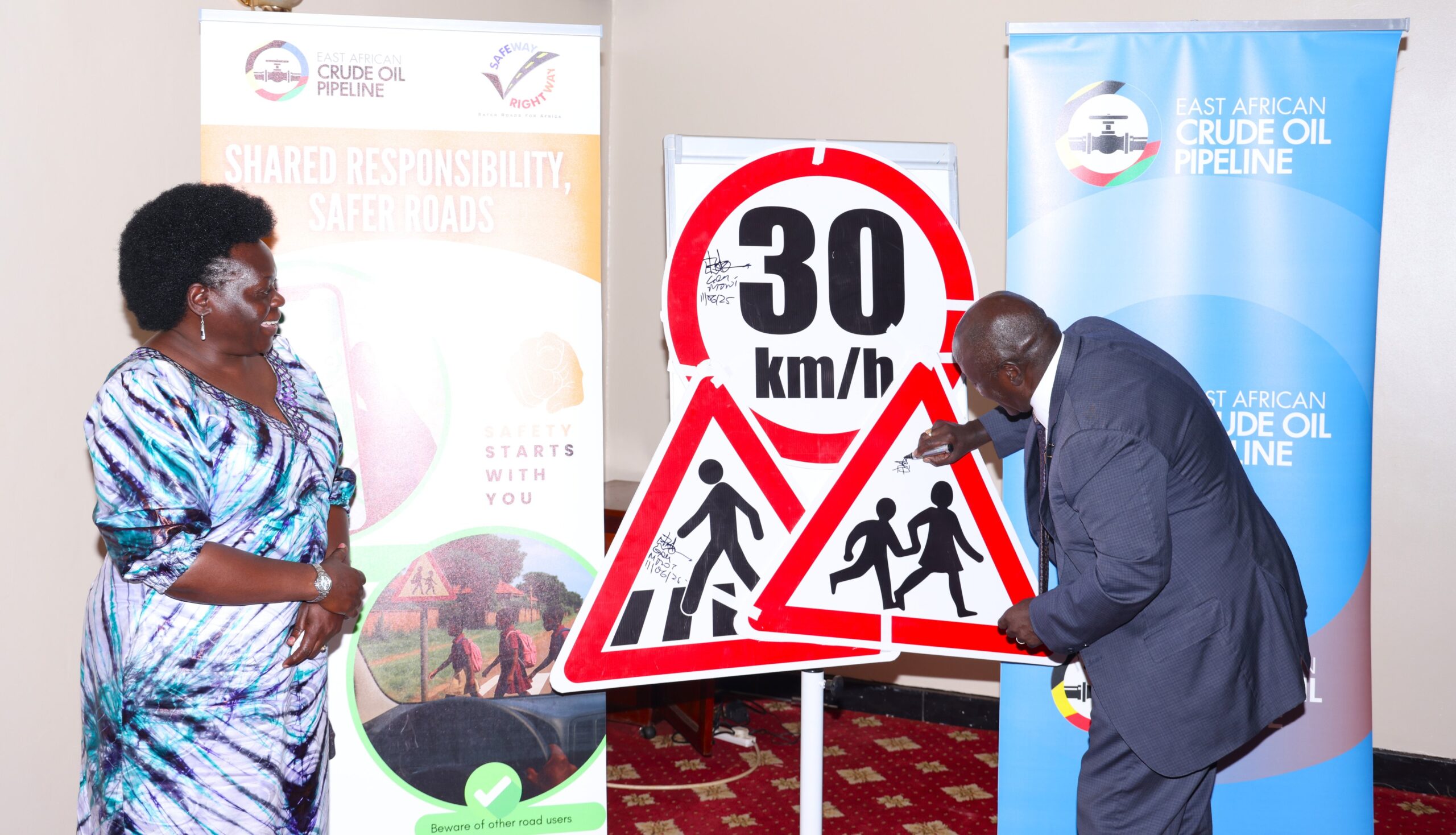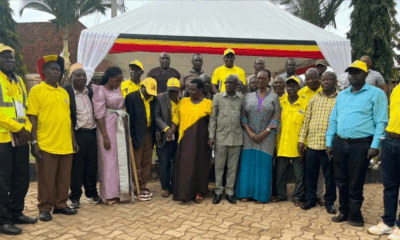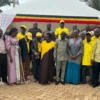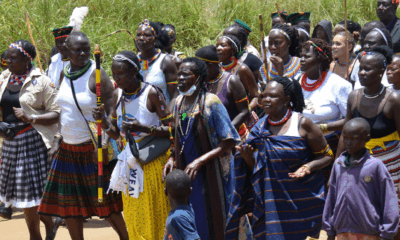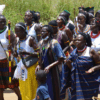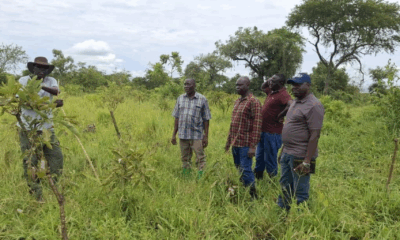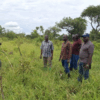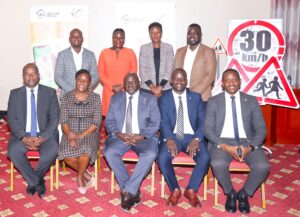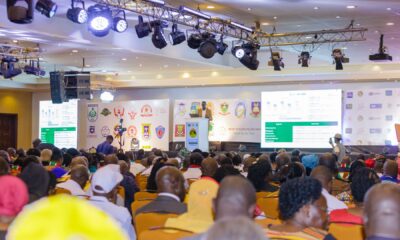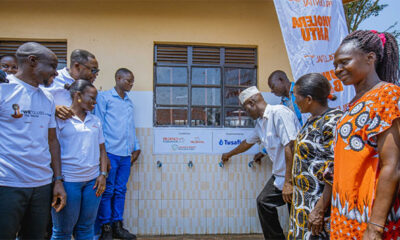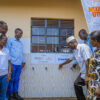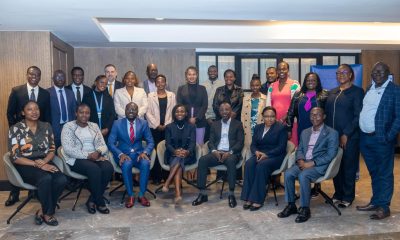Climate Change
EACOP and Safe Way Right Way Launch Major Road Safety Initiative Along Pipeline Corridor
The East African Crude Oil Pipeline (EACOP) Ltd., in partnership with Safe Way Right Way Initiative Ltd. (SWRW), today officially launched a comprehensive Community Road Safety Project (CRSP) aimed at significantly enhancing road safety along the EACOP route in Uganda. The ambitious initiative underscores EACOP’s commitment to sustainable and safe development within the communities traversed by the 897-mile pipeline.
The launch event, held at Hotel Africana, brought together a diverse group of stakeholders, including senior officials from various government ministries, law enforcement agencies, civil society organisations, and local leaders. The project’s unveiling highlights a proactive approach to mitigating road risks associated with increased activity along the pipeline corridor.
The CRSP follows a contract awarded by EACOP Ltd. to SWRW in November 2024, tasking the organisation with developing and implementing targeted road safety initiatives across 10 Ugandan districts. These districts, including Kyotera, Gomba, Rakai, Lwengo, Sembabule, Mubende, Kakumiro, Hoima, Kyankwanzi, and Kikuube, encompass 182 miles of the pipeline’s path.
Guillaume Dulout, Managing Director of EACOP Ltd., emphasised the profound importance of the project at the launch. “Today marks a significant milestone in our collective journey towards building safer communities along the East African Crude Oil Pipeline corridor,” Dulout stated. “Community road safety is a critical pillar of our Socio-Economic Initiatives, and this activity was initially started in Tanzania by a nonprofit NGO called Amend.”
The multi-faceted project will incorporate a range of interventions, including extensive community outreach programs, specialised training for traffic police, thorough road infrastructure assessments, detailed crash data surveys, and vital training for lay crash responders. Public awareness campaigns will further amplify road safety messages through regional radio broadcasts and strategically placed roadside billboards, promoting responsible road use among the populace.
This new initiative builds upon EACOP’s existing robust safety protocols, which already include an in-vehicle monitoring system, stringent speed limits for contractor vehicles, and a strict no-night-driving policy.
Key components of the CRSP are set to include:
- Recruitment of dedicated Community Liaison Officers to foster effective local engagement.
- Conducting regional inception meetings in Bunyoro and Greater Masaka to ensure tailored approaches.
- Developing a post-crash care evaluation framework in close collaboration with district health services.
- Training community road safety champions and responders in high-risk areas to facilitate immediate and effective responses.
“This launch is more than a ceremony; it is a call to action,” Dulout added. “It is a platform for meaningful dialogue among stakeholders — government agencies, development partners, local leaders, researchers, and media — to shape a road safety framework that is inclusive, practical, and effective.”
Namuyiga Irene, General Manager of Safe Way Right Way Uganda, expressed enthusiasm for the collaborative effort. “We are proud to partner with EACOP on this transformative initiative,” Irene said. “The Community Road Safety Project reflects our shared commitment to saving lives and ensuring that development brings safety, not risk, to local communities. Through strategic partnerships and evidence-based interventions, we aim to cultivate safer roads and more resilient communities across the EACOP districts.”
The launch was officiated by Gen. Edward Katumba Wamala, Uganda’s Minister of Works and Transport, who lauded the partnership. “This partnership between EACOP and Safe Way Right Way is not just a commendable initiative; it is a critical intervention at a time when Uganda’s road infrastructure is rapidly expanding,” Wamala stated. “As a government, we welcome this effort, because road safety is not a peripheral issue; it is central to the success of all development projects.”
Minister Wamala underscored Uganda’s increasing regional connectivity. “Uganda is no longer landlocked; we are land-linked. Our roads connect us to the region, and that means every investment in transport must be built on a foundation of safety. The communities along the pipeline have seen lifestyle changes, and with that comes the responsibility to protect lives. This project speaks directly to that need.”
The EACOP Community Road Safety Project is anticipated to significantly enhance national and community-level coordination on road safety. Furthermore, it aims to establish a replicable model that can be adopted for future large-scale infrastructure projects across the East African region.
“It is our duty as developers, contractors, government, and communities to ensure that development does not come at the cost of human life or wellbeing,” Dulout concluded. “That is why road safety is key to EACOP’s operations.”
Comments



